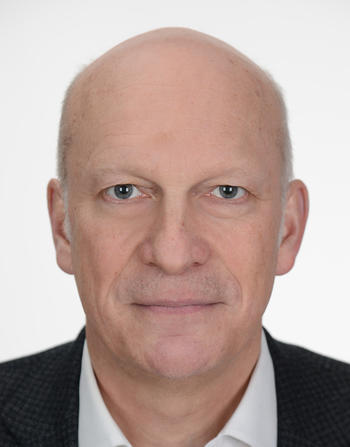风萧萧_Frank
以文会友汉斯·范·埃斯教授博士
https://www.worldmaking-china.org/en/people/van-ess.html
慕尼黑大学 Hans van EssLudwig-Maximilians 教授、博士
文化科学学院亚洲研究部,汉学研究所
“划时代的生活世界:危机与变革叙事中的人、自然和技术”项目首席研究员
电子邮件 ess[at]lmu.de
主页 LMU Hans van Ess 教授博士
简介
汉斯·范·埃斯 (Hans van Ess) 1962 年出生于法兰克福附近,在德国南部的蒂宾根长大。 在汉堡大学学习汉学、突厥研究和哲学后,他在上海复旦大学学习了两年,然后于 1992 年获得了中国古代思想史博士学位。1992 年至 1995 年,范埃斯在德国亚洲中心担任区域经理。 - 汉堡太平洋商业协会会员,1995年至1998年担任海德堡大学汉学研究所助理教授。 1998年,他出任慕尼黑路德维希马克西米利安大学汉学研究所所长。 2015年,他当选为德国海外人文学院马克斯·韦伯基金会主席。 自 2013 年起,他担任慕尼黑大学负责国际事务的副校长,自 2019 年起担任负责研究的副校长。
芭芭拉·米特勒 (Barbara Mittler) 与帕尔格雷夫·麦克米伦 (Palgrave Macmillan) 出版的出版物《太阳之后:缓慢的希望?通过中国革命重新思考持续的危机》
2023 年 12 月 11 日新闻
https://www.worldmaking-china.org/en/aktuelles/article-After-the-Sun-Slow-Hope_-Rethinking-Continuous-Crisis-Through-China-s-Revolutions.html
2023年9月22日,芭芭拉·米特勒(Barbara Mittler)的文章《太阳之后:缓慢的希望?通过中国革命重新思考持续的危机》(Epochal Life Worlds: Man, Nature and Technology in Narratives of Crisis and Change)发表在《帕尔格雷夫手册》上 左翼极端主义,第 2 卷”(J.P. Zúquete 编辑)。 有关该出版物的更多信息
抽象的:
二十世纪初,中国艺术家和知识分子注意到中国正在陷入深深的黑暗。 面对鸦片战争乃至小邻国日本的国势衰弱,作家、诗人和漫画家都在思考拯救中国的最佳途径。 毛泽东是承诺重拾光明的人物之一。 在他的一生中,他被誉为“永远不落的太阳”,这个绰号至今仍被人们提起,无论是积极的还是消极的——事实上,它已经成为一个重要的艺术比喻。 在本文中,我认为这种比喻的遗产是最重要的左翼极端主义符号或传播媒介。 考虑到支持者和批评者如何使用它,我将考虑与其传播的宗教极端主义相关的认知暴力。 它在毛主义全盛时期传播的热情解释了它的一些迷人和创伤性影响。 在思考漫长的中国二十世纪的艺术话语——音乐、文学和视觉、大众和精英主义——本文试图理解左翼极端主义,或者换句话说,毛主义幽灵的力量。 它可以被视为表明持续的危机,同时不断地激发新的乌托邦梦想的实现——缓慢的希望。
Publication "After the Sun: Slow Hope? Rethinking Continuous Crisis Through China’s Revolutions" by Barbara Mittler published with Palgrave Macmillan
News from Dec 11, 2023
https://www.worldmaking-china.org/en/aktuelles/article-After-the-Sun-Slow-Hope_-Rethinking-Continuous-Crisis-Through-China-s-Revolutions.html
On September 22, 2023, the article "After the Sun: Slow Hope? Rethinking Continuous Crisis Through China's Revolutions" by Barbara Mittler (Epochal Life Worlds: Man, Nature and Technology in Narratives of Crisis and Change) was published in "The Palgrave Handbook of Left-Wing Extremism, Volume 2" (ed. J.P. Zúquete). More abour the publication
Abstract:
At the beginning of the twentieth century, Chinese artists and intellectuals noticed that China was sinking into deep darkness. Faced with the country’s weakness, manifested in losses in the opium wars and even against its small neighbor, Japan, writers, poets, and cartoonists were reflecting on the best way to save China. One character who promised to bring back the light was Mao Zedong. During his lifetime, he was hailed as “The sun that never sets 永远不落的太阳,” an epithet that continues to be evoked to this day, both in a positive and in negative sense—indeed it has become an important artistic trope. In this paper, I consider the legacy of this trope as the most important left-wing extremist symbol or propageme. Considering how it has been used by supporters as well as critics, I will consider the epistemic violence related to the religious extremism with which it was propagated. The verve with which it was disseminated during the heydays of Maoism explains some of its beguiling as well as traumatic effects. In considering artistic discourses during the long Chinese twentieth century—musical, literary and visual, popular, and elitist—this paper is an attempt to understand the power of left-wing extremism, or, in other words, the Maoist specter. It can be seen as indicating continuous crisis while at the same time continually instigating the making of ever new and utopian dreams—slow hope.
Prof. Dr. Hans van Ess
https://www.worldmaking-china.org/en/people/van-ess.html
 Ludwig-Maximilians-Universität München
Ludwig-Maximilians-Universität München
Fakultät für Kulturwissenschaften, Department für Asienstudien
Institut für Sinologie
Principal Investigator of the project "Epochal Life Worlds: Man, Nature and Technology in Narratives of Crisis and Change"
Short Biography
Hans van Ess, born 1962 near Frankfurt, grew up in Tübingen in Southern Germany. After studying Sinology, Turkic Studies and Philosophy at the University of Hamburg he spent two years at Fudan University in Shanghai before finishing a PhD on China’s history of ancient thought in 1992. From 1992-1995 van Ess worked as an area manager at the German Asia-Pacific Business Association in Hamburg and from 1995 to 1998 as assistant professor at the Institute for Sinology of the University of Heidelberg. In 1998 he took over a chair at the Institute for Sinology at Ludwig-Maximilians-Universität Munich. In 2015 he was elected president of the Max-Weber-Foundation – German Institutes in the Humanities abroad. Since 2013 he was Vice-President for International Affairs at LMU, since 2019 he serves as Vice-President for Research.
德国汉学家汉斯·范埃斯:让更多人了解中国是我们的任务
T-House 2024年2月16日
https://www.youtube.com/watch?v=X9J30fD7GgA
德国汉学家汉斯·范埃斯教授是慕尼黑大学负责研究的副校长。 他指出,虽然德国民众总体上喜欢中国,但由于某些媒体的影响,仍然存在很多误解。 “这实际上是汉学家的任务……解释中国文化是什么,”他说。
German sinologist Hans van Ess: Making more people understand China is our task
T-House 2024年2月16日
https://www.youtube.com/watch?v=X9J30fD7GgA
German sinologist Prof. Hans van Ess is the vice-president for research at LMU Munich. He points out that though German people generally like China, there are still many misunderstandings which are brought about by the influence of certain media. "This is the task actually of sinologists… to explain what Chinese culture is about," he says.




